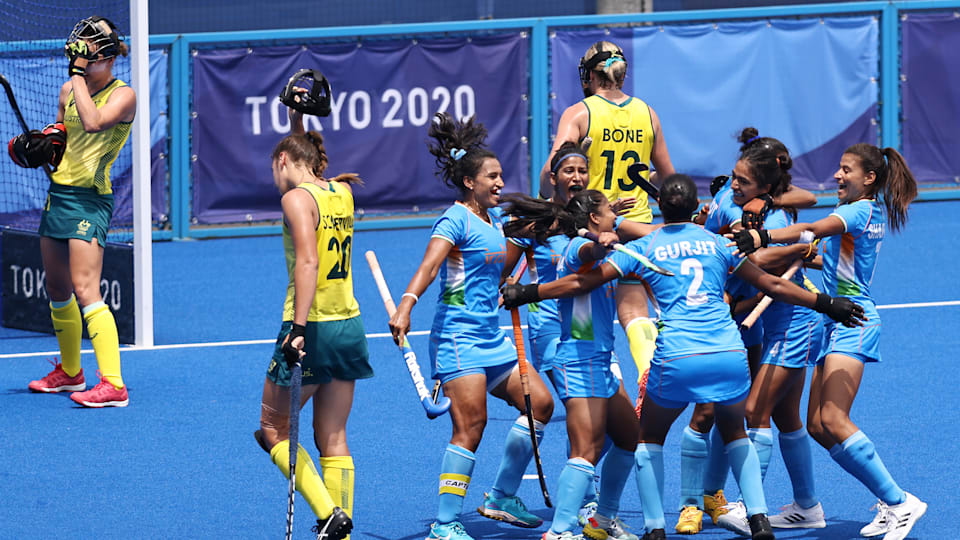Neil Hawgood: India women’s team’s skill level was better than Australia
The former India women’s hockey coach believes that Indians have adapted better to the hot and humid conditions in Tokyo.

The Indian women’s hockey team made it into the semi-finals of Tokyo 2020 Olympic Games as they edged past Australia 1-0 in a thrilling encounter on Monday. It was a monumental result as the Indian eves made it to the semifinals of an Olympics for the very first time in history, marking a a massive improvement from their group stage exit at Rio 2016.
The Indian women's team had first qualified for Olympics back in Moscow 1980 where they finished fourth amongst six participants with two wins, as many defeats and a draw in five outings. Their next appearance was at Rio 2016 where they finished at the bottom of their cluster with four defeats and a draw.
At Tokyo 2020, they kick-started their campaign on a disastrous note with a 5-1 loss to Netherlands and followed by defeats to Germany and Great Britain. However, wins over South Africa and Ireland propelled them into the quarterfinals where they upset favourites Australia, who didn’t have any answer to India’s grit and determination to qualify for the semi-finals.
“(It’s) good to see them play that well. The belief and how mentally tough they are (is making the difference). Against South Africa they just kept on believing and kept on pushing, and it didn’t bother them. They got even more belief from that game. Today, they just outplayed Australia. Their skill level was better than Australia’s because of the pressure they applied. Again, the belief the two new coaches (head coach Sjoerd Marijne and assistant coach Erik Wonink) have brought in. It’s just good to watch them grow,” Neil Hawgood, the former India women’s hockey team coach, told Olympics.com.
Hawgood was the coach of India at Rio 2016 and he spoke on how having more experience in the squad has been beneficial this time around. He also stressed that the heat in Tokyo helped the Indians more than the Australian side as they struggled to adapt to the local conditions.
“You get four years of work into them. There are a lot of players from that group who have worked on it. Once you have an Olympic cycle, you are ready to push on to the next one. And unfortunately, they never had that before Rio. And the two new coaches have continued to push them," Hawgood explained.
The heat also played a part, Indians are used to playing in conditions like these. The Australians could never match a mid-day heat in Tokyo,” said the former Australian player, who participated at the Seoul 1988 Olympics.
“The issue we had in Rio was that we didn’t have any Olympians to fall back on. Now they have seven-to-eight players who played in the last Olympics and have that experience. It helps the new ones as well,” he added.
Goalkeeper Savita Punia was the star performer for India as she made countless saves and her experience at the back was vital to steady the defence. Hawgood acknowledged and stated that it was the experienced goalkeeper who kept India in the mix throughout against Australia.
“If you are going to give someone a lot of money, you better give it to her (Savita Punia). She kept them in the game today. In the end, what they did was they worked for each other. They didn’t sit back and wait for someone to do something. When they pressed, they pressed together. Their commitment to work for each other was good to watch,” observed Hawgood.
